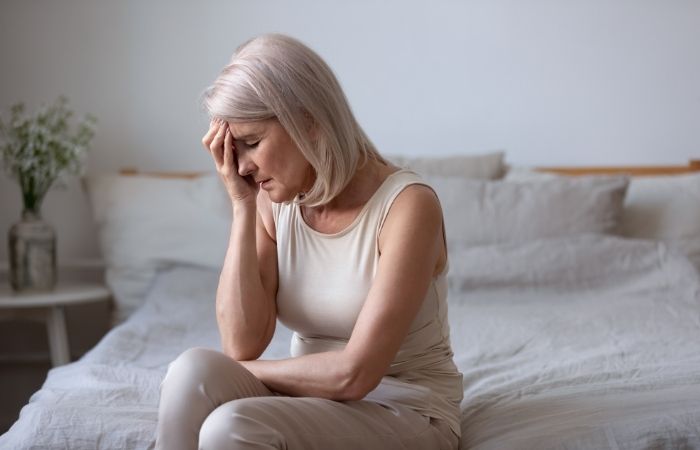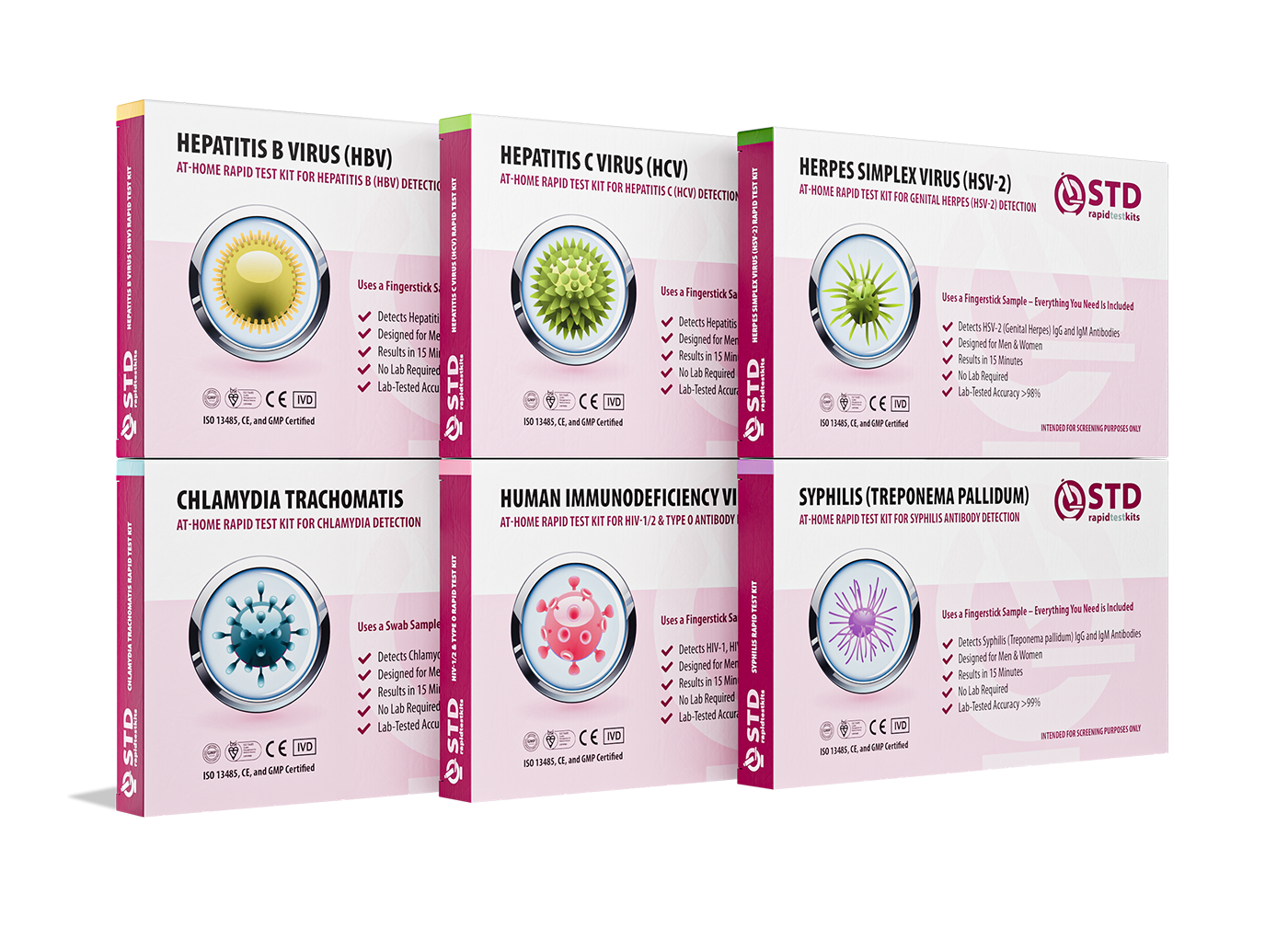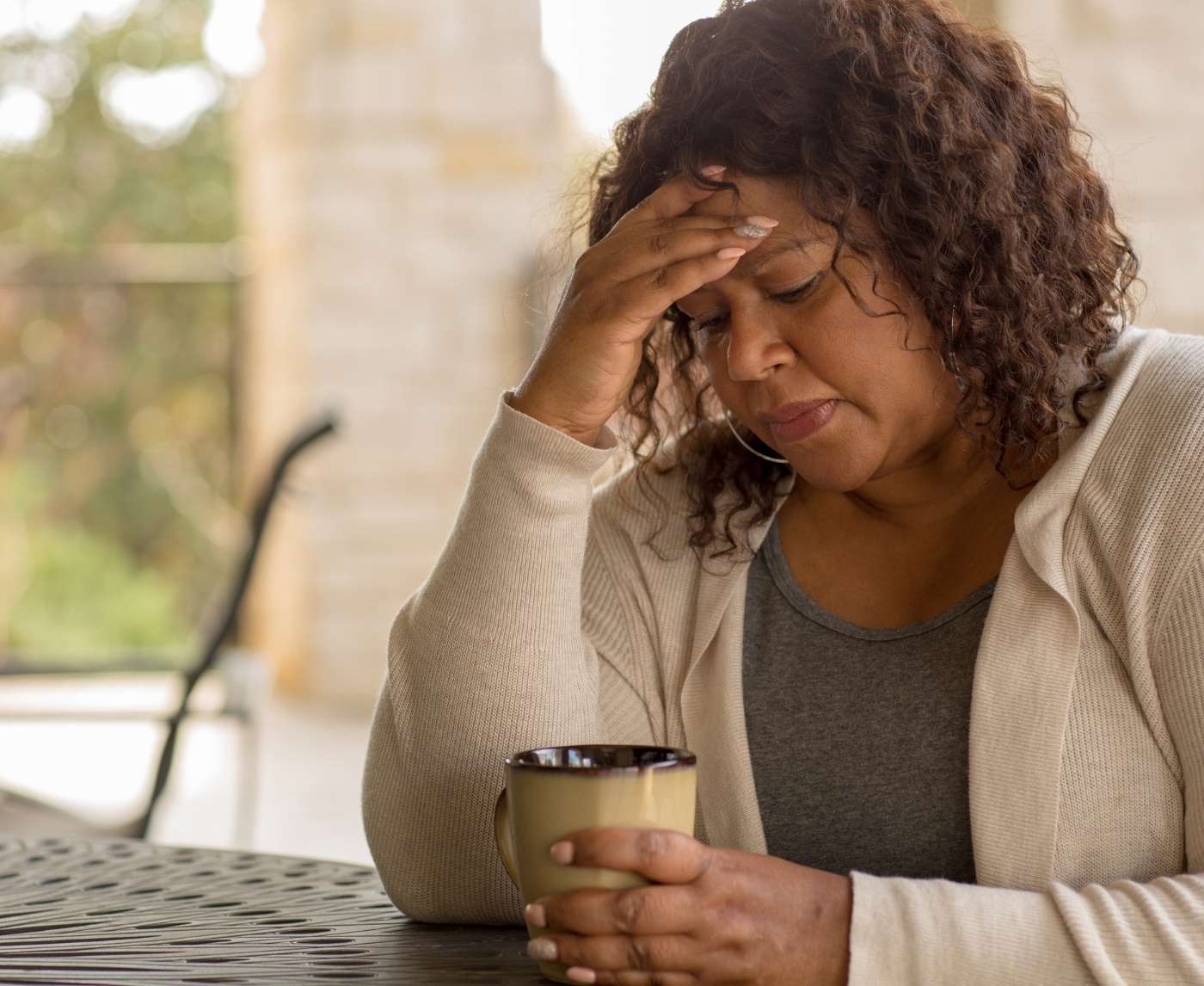Affordable and Accurate: The Evolution of At-Home STD Testing by 2025
Menopause and Sexually Transmitted Diseases: A Synopsis
Menopause is a period in a woman's life marked by specific physical changes, one of which involves sexual health. The signs of low estrogen levels include dryness in the vagina, atrophy of the vaginal walls, and an increased risk of microtears during intercourse, which can predispose one to sexually transmitted diseases.
The need to use protection in sexual encounters appears to become less significant as women return to the dating scene post-menopause or in the postmenopausal years. A pregnancy is not a possibility anymore, so what's the worry, right? One of the contributing factors to the STD figures in older adults is the general misunderstanding regarding the risks of STDs.
Key Factors Contributing to Increased Risks
- Mood Swings: Vaginal atrophy and dryness can increase the risk of vaginal injury during sexual intercourse.
- Immune System Changes: With advancing age, our body may not be able to fight off diseases as effectively.
- Lack of Awareness: Most women do not realize that they are still at risk of sexually transmitted infections simply because of a lack of awareness.
Knowing these risk factors can help one engage in much safer sexual behaviors in light of menopause.

The Most Important Things to Do After Menopause to Stay Safe
Menopausal sexual health is much more than just warding off sexually transmitted diseases; it's about embracing overall well-being, ease, and tranquility.
Why Be Proactive and Well-Informed
- Keeping Your Confidence and Comfort Levels High
Lubricants and hormone replacement therapy (HRT) can help with vaginal atrophy, which makes sexual encounters more comfortable, less dangerous, and more pleasurable. - Ensuring Health in the Long Run
Serious problems, such as heart disease, persistent pain, and pelvic inflammatory disease (PID), can develop from sexually transmitted diseases (STDs) that go untreated. To avoid these consequences, it is important to practice safe sex and be tested regularly. - Strengthening Interpersonal Connections
Especially after a period away from dating, having open discussions about sexual health testing and its implications on relationships is paramount. - Obtaining Testing Relief
You can save yourself the inconvenience of visiting the clinic by employing the services of reliable at-home STD testing kits and receive accurate results in the shortest time possible to take immediate action if need be.
Order Now $129.00 $343.00 Check Your STD Status in Minutes
Test at Home with Remedium
7-in-1 STD Test Kit




For all 7 tests
Menopause and Sexual Health: Challenges
Addressing sexual health during menopause can be intimidating, but knowledge is power.
Common Obstacles Women Encounter
- Societal Stigma
Even for older women, it could be awkward to talk about sexually transmitted diseases (STDs). Silence and ignorance are common outcomes of this stigma. - Lack of Knowledge
Your risk for sexually transmitted diseases does not go away after menopause, which is something many women aren't aware of. The perpetuation of the myth that STDs are primarily a "younger generation" issue can put off much-needed testing and treatment. - Pain After Experience
Vaginal dryness and discomfort may make women refrain from being concerned about their sexual health, yet ignoring these concerns simply raises the dangers. - Limitations of Resources
Clinics and doctors' offices are not always accessible to every woman. It is here that test kits for STDs usable at home come into play, offering a viable and accessible solution.
Ways to Protect Your Sexual Health
The good news? There are some real-world things you can do to protect yourself during menopause.
- Get Informed
Understand how menopause can increase the risk for sexually transmitted diseases. Share the information you have gathered with your friends or partners to encourage a culture of awareness. - Practice Good Sexual Decision-Making
Even after menopause, women are still at risk for STDs. Continue using condoms. When you want to avoid tears and dry vagina, lubricated condoms are the way to go. - Get Tested
For the sake of your well-being and to avoid any inconvenience, you are advised to go for regular tests for STDs. The procedure is effortless and discreet with our home test kit for STDs. - Address Vaginal Weakness
Consult your health physician about dryness treatment options such as HRT or vaginal moisturizers that will help ease this complaint and reduce your chances of sustaining an injury. - Encourage Open Communication
Talk to your partner openly about your sexual health. Testing and protection can be discussed honestly to strengthen relationships and protect both partners.

Emerging Trends in Sexually Transmitted Diseases Among the Elderly
The trend of STDs among the elderly has been an emerging concern in recent research studies.
- CDC analysis reports that the prevalence of sexually transmitted diseases among adults aged 50 and over has almost quadrupled in the past decade.
- Postmenopausal women contribute to increased chlamydia, gonorrhea, and syphilis.
- The gap in communication is prominent because research suggests only 20% of women between 50 to 70 years discussed their sexual life routinely with doctors.
Doctors' Opinions: What They Think and Advise
Menopause, for sure, is a period when medical experts emphasize the importance of active prevention in treating sexual health.
"Menopause does not mark the end of your journey with sexual health," affirms Dr. Sarah Thompson, a gynecologist who focuses on the health of women. "On the contrary, now it is more crucial to increase awareness about the problems and ways to avoid them. It is vital to have STD testing on a regular basis and be open to one's partner."
Order Now $119.00 $294.00 Check Your STD Status in Minutes
Test at Home with Remedium
6-in-1 STD Test Kit




For all 6 tests
FAQs
1.- Is there an increased risk of sexually transmitted diseases (STDs) during menopause?
Yes, due to changes such as vaginal dryness, weakened walls of the vagina, and reduced immune function.
2.- Do older adults have a higher incidence of sexually transmitted diseases?
Research shows STD rates are on the rise among adults aged 50 and up.
3.- When should I get tested for sexually transmitted diseases after menopause?
Routine testing every 6-12 months is recommended if you have new or multiple partners.
4.- Will vaginal atrophy affect the risk of sexually transmitted diseases?
Yes, microtears during intercourse increase the risk.
5.- Should women in menopause look out for the presence of sexually transmitted diseases?
Yes, testing is necessary, as many STDs do not exhibit symptoms.
6.- Can I use moisturizers or lubricants with condoms without risk?
It is quite alright to use lubricants made of water or silicone to reduce friction and prevent vaginal injuries and condom breakage.
7.- Why is it a good idea to have at-home STD test kits?
With the at-home STD test kits, women who are apprehensive about attending clinics can now get themselves tested easily and in privacy.
8.- Will my doctor judge me if I discuss my sexually transmitted diseases?
Doctors handle sexual health matters delicately. Open discussions ensure better care and precautions.
9.- How can I bring up the topic of sexually transmitted disease testing with a romantic partner?
Stay calm and forthright. For mutual peace of mind, explain why you're considering testing and propose that you undergo the procedure together.
10.- Does using a condom completely remove the possibility of contracting an STD?
While condoms lessen the likelihood of infection, they do not eradicate it completely. Consistent and proper use maximizes their effectiveness.
Maintain Your Empowerment
Be confident in your sexual health. The transition into menopause should not be an afterthought regarding protection against sexually transmitted diseases. Our at-home STD test kits are a quick, discreet, and reliable way to keep an eye on your health. Don't wait any longer; take matters into your hands today!
Sources
1. Menopause Increases Risk of Sexually Transmitted Infections – Clinical Advisor
3. Changes in Innate Immune Components in the Female Reproductive Tract Postmenopause – PMC
4. STI Incidence in Midlife Women: Risk & Underdiagnosis Postmenopause – Micks et al., 2024
5. Menopause Weakens Vaginal Tissue and Raises STI Risk—Research from Ohio State (2025) – New York Post










